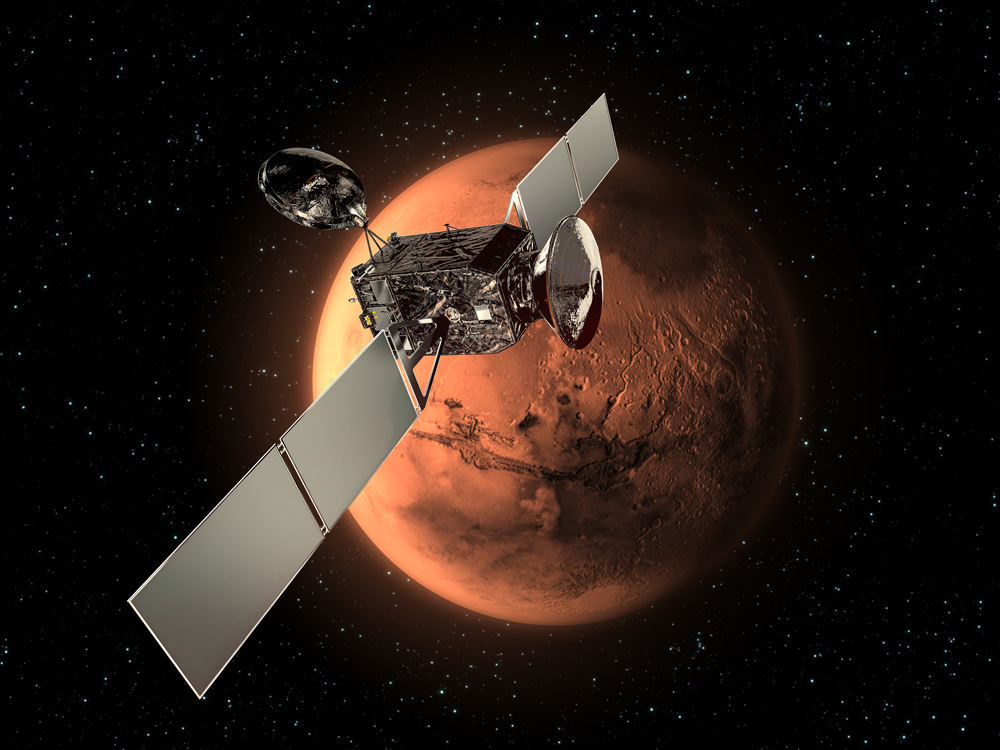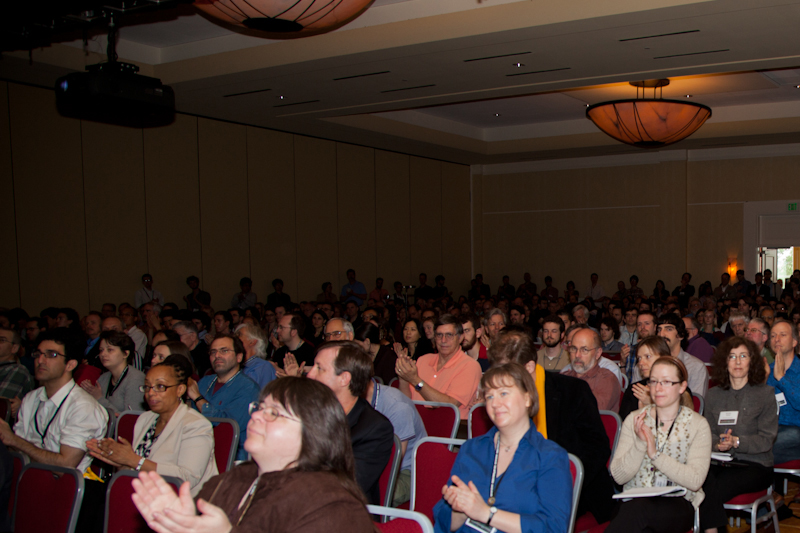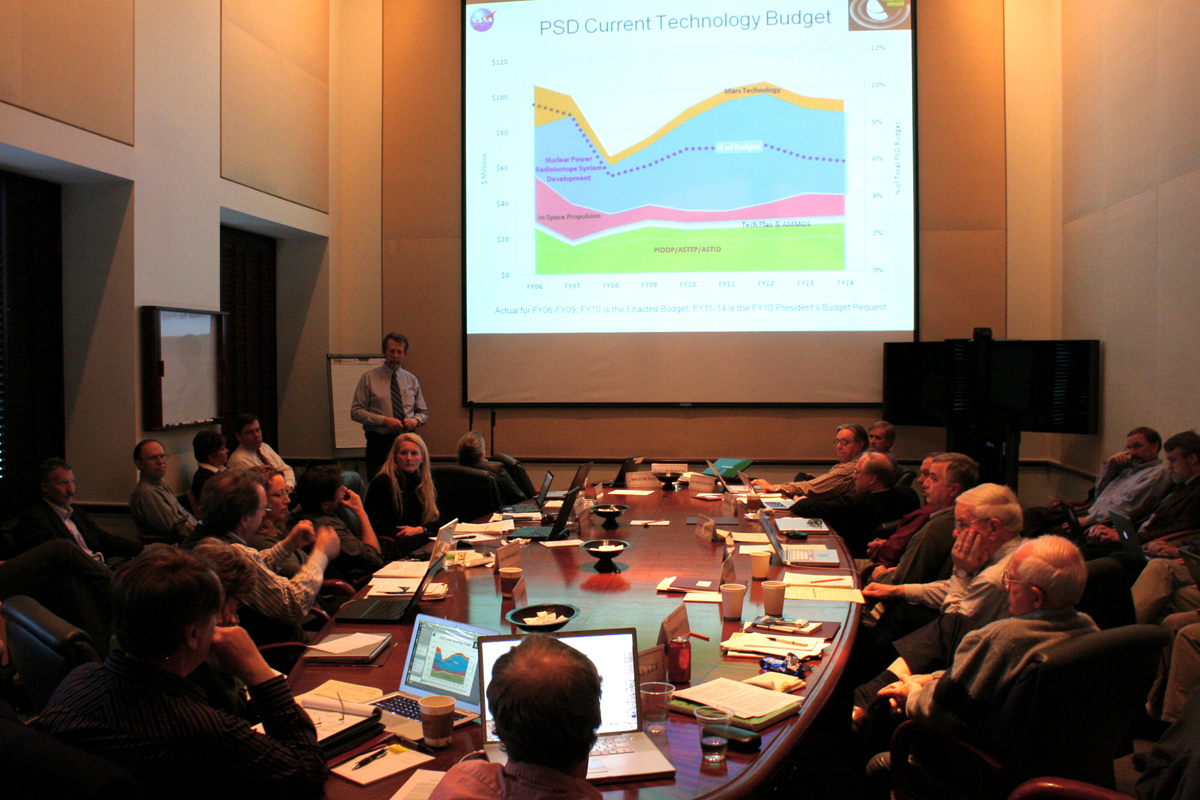
Scientists Vow to Fight Cuts in NASA's Planetary Science

THE WOODLANDS, Texas — Angry space scientists have launched a call to action to restore NASA's planetary science budget — a rallying cry to push back on President Obama's proposed fiscal year 2013 budget for NASA.
That budget calls for deep cuts to the nation’s planetary science program, a drop of more than 20 percent. The reduction in NASA's planetary budget by $309 million includes cutting the Mars exploration program by $130 million.
Some 2,000 space researchers and luminaries are attending the 43rd Lunar and Planetary Science Conference here, and they are not happy.

"Part of the reason that planetary [science] got 'whacked' … is because the planetary community is perceived in certain powerful circles as being weak," said Andrew Chaikin, a veteran science journalist, space historian and author. "We have to come together and show them you're not weak," he said before a town hall gathering of disgruntled space scientists.
"We have to come together and respond in a sustained way to chart our own course," Chaikin said.
Backing that view is noted Mars scientist Steven Squyres, the Goldwin Smith Professor of Astronomy at Cornell University in Ithaca, N.Y. Squyres is Cornell's principal investigator for NASA's Opportunity rover currently exploring Mars. Last year, he chaired a major space science review — the Planetary Science Decadal Survey: Vision and Voyages for Planetary Science in the Decade 2013-2022.
A year later, the findings of that detailed space exploration blueprint have fallen victim to budget cuts.
Get the Space.com Newsletter
Breaking space news, the latest updates on rocket launches, skywatching events and more!
"There's need to respond as a united community … that cannot be stressed too much," Squyres said. He urged the gathering to not react as a community of Mars fans, or Europa fans, not even respond as a community of planetary scientists. "Respond as a community of space scientists."
Wanted: A united community
Squyres said he has spent a lot of time since the proposed NASA budget came out talking to various decision makers in Washington, D.C., on Capitol Hill and elsewhere.
"I will tell you that as bad as this looks … [there are those] looking for ways to cut even further," Squyres said. "What we must not do is to give anybody a reason for cutting planetary further … there's going to be pressure to do that."
Squyres added: "There's no surer way to give budget cutters, and there are a lot of them out there, a reason to go after the planetary program than to project appearance of disunity, disarray, disagreement, as to what we should be doing. We must speak as one voice."
Fighting to explore other planets
Joining in on the call to action is scientist Laurie Leshin, dean of the school of science at Rensselaer Polytechnic Institute and president of the American Geophysical Union’s Planetary Sciences Section.
Leshin is a former deputy associate administrator of exploration systems for NASA.
"This is an egregious cut," Leshin said. "NASA can't fight this fight for us. We have to take it to the Hill."

Among impacts from the proposed budget is cancellation of two ambitious Mars missions with the European Space Agency, an act that may not be recoverable at this point, scientists contend. The impact of budget cuts also means that no new flagship-class missions — no more Voyager, Galileo or Cassini-like spacecraft exploration, with the now en-route Mars Science Laboratory as the last of that category.
Furthermore, space scientists point out that the budget ax degrades the workhorse NASA Discovery program from an early cadence of 24 months to 56 months, and degrades the New Frontiers program from a planned cadence of two per decade to one per decade.
Leshin urged space scientists to get engaged for the fight. She suggested that a weak planetary science program is going to result in a weak NASA, at a time when the space agency is attempting to scope out human space travel beyond low-Earth orbit.
"We need to get this reversed. If this cut stands this year, restoration in future budgets will be much more difficult. Our time is now, these next few months," Leshin said.
In summing up the situation, Squyres said: "We all must hang together or we will hang separately."
Leonard David has been reporting on the space industry for more than five decades. He is a winner of last year's National Space Club Press Award and a past editor-in-chief of the National Space Society's Ad Astra and Space World magazines. He has written for SPACE.com since 1999.
Join our Space Forums to keep talking space on the latest missions, night sky and more! And if you have a news tip, correction or comment, let us know at: community@space.com.

Leonard David is an award-winning space journalist who has been reporting on space activities for more than 50 years. Currently writing as Space.com's Space Insider Columnist among his other projects, Leonard has authored numerous books on space exploration, Mars missions and more, with his latest being "Moon Rush: The New Space Race" published in 2019 by National Geographic. He also wrote "Mars: Our Future on the Red Planet" released in 2016 by National Geographic. Leonard has served as a correspondent for SpaceNews, Scientific American and Aerospace America for the AIAA. He has received many awards, including the first Ordway Award for Sustained Excellence in Spaceflight History in 2015 at the AAS Wernher von Braun Memorial Symposium. You can find out Leonard's latest project at his website and on Twitter.









